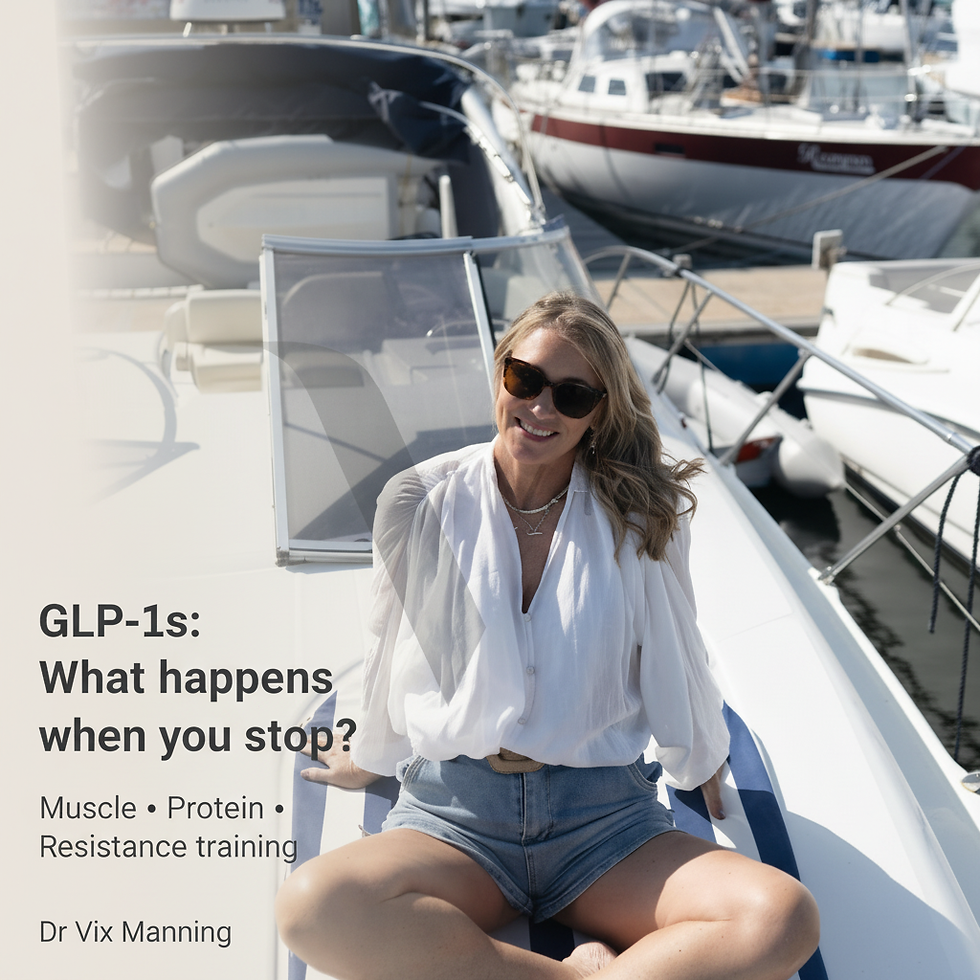Could Your Biological Age Be Different From Your chronological Age?The Omega-3 Connection
- Dr Victoria Manning

- Feb 17, 2025
- 3 min read

As a doctor specialising in aesthetics & preventive wellness, I've noticed a fascinating trend: many high-performing professionals are chronologically young but biologically ageing faster than they should. The good news? Groundbreaking research published in Nature Ageing reveals we might have more control over this process than previously thought.
The Science of Ageing: Not Just About Birthday Candles
Think of your body like a high-performance vehicle. Just as two cars of the same year can be in vastly different conditions depending on maintenance, our bodies age at different rates. This biological ageing - how old our cells actually are - can be significantly influenced by something as simple as essential fatty acids.
The Game-Changing Discovery
Recent research has unveiled something remarkable: individuals taking just one gram of Omega-3 fatty acids daily showed measurable deceleration in their biological aging. In fact, participants' biological age increased by approximately four months less than those who didn't supplement.
But here's what really caught my attention: the results were even more pronounced in people with lower baseline Omega-3 levels - and most people don't even know their levels.
Why This Matters for Professionals
As someone working daily with busy executives and professionals, I've seen how:
- Chronic stress accelerates biological ageing
- Poor cellular health affects everything from mental clarity to physical energy
- Most people are flying blind when it comes to their essential fatty acid levels
The Hidden Problem
Here's the challenge: you can't optimise what you don't measure. While many of us focus on regular blood tests, cholesterol checks, and annual physicals, few know their Omega-3 index - a critical marker of cellular health and biological ageing.
Taking Control of Your Ageing Process
The most effective approach I've found combines three key elements:
1. Baseline testing to understand your current Omega-3 status
2. Targeted supplementation based on actual needs
3. Regular monitoring to ensure optimal levels
Incorporating Omega-3 into your diet

Omega-3s are most naturally formed in the tissue of oily fish. We need to get these essential nutrients from high-quality, fatty fish, or premium fish oil supplements. Remember, the fish or fish oil supplement must be fresh and potent for the nutrients to be absorbed in the body. To harness the potential anti-ageing benefits of Omega-3s, consider the following:
· Dietary sources: Incorporate Omega-3-rich foods into your meals, such as fatty fish (salmon, mackerel, sardines), walnuts, flaxseeds, and chia seeds.
· Supplements: If you’re not getting enough fatty fish in your diet, consider taking high-quality fish oil supplements fortified with vitamin D and polyphenols. Consult with a healthcare professional before starting any new supplement regimen.
· Holistic approach: To maximise the health benefits, combine Omega-3 intake with other healthy lifestyle practices, such as regular exercise and a balanced diet. You should also monitor your fatty acid profile and vitamin D levels throughout the year.
Your Next Step
Are you making decisions about your health based on assumptions or data? As a healthcare professional, I offer comprehensive testing that can reveal your true Omega-3 status and biological age markers. This isn't just about living longer - it's about maintaining peak performance throughout your career and beyond.
Want to know your real biological age and Omega-3 status? Let's connect. I'm offering complimentary consultations to discuss how testing can help you optimise your health journey.
#PreventiveHealth #WellnessOptimisation #BiologicalAgeing #ProfessionalPerformance #HealthcareInnovation



Comments